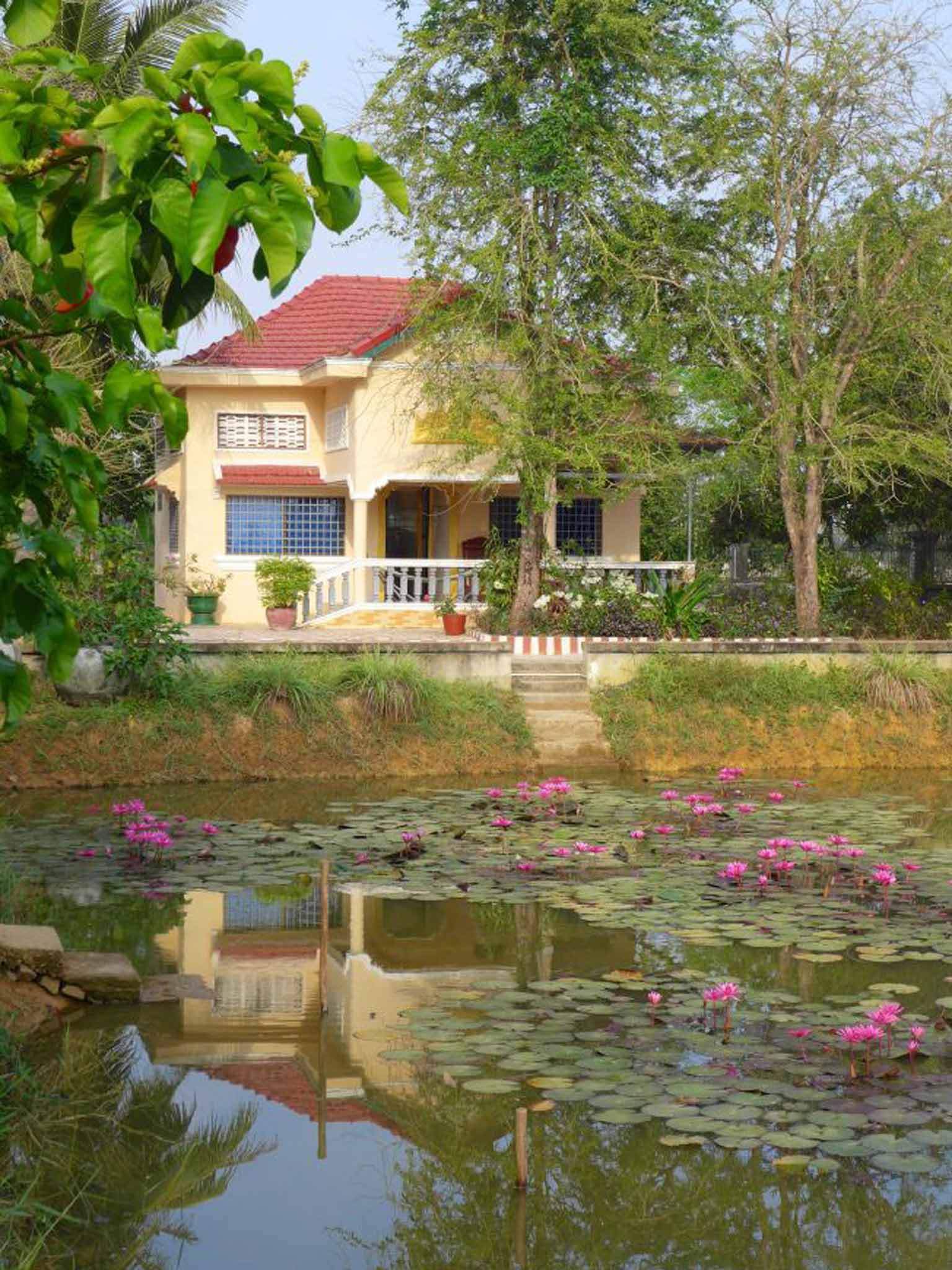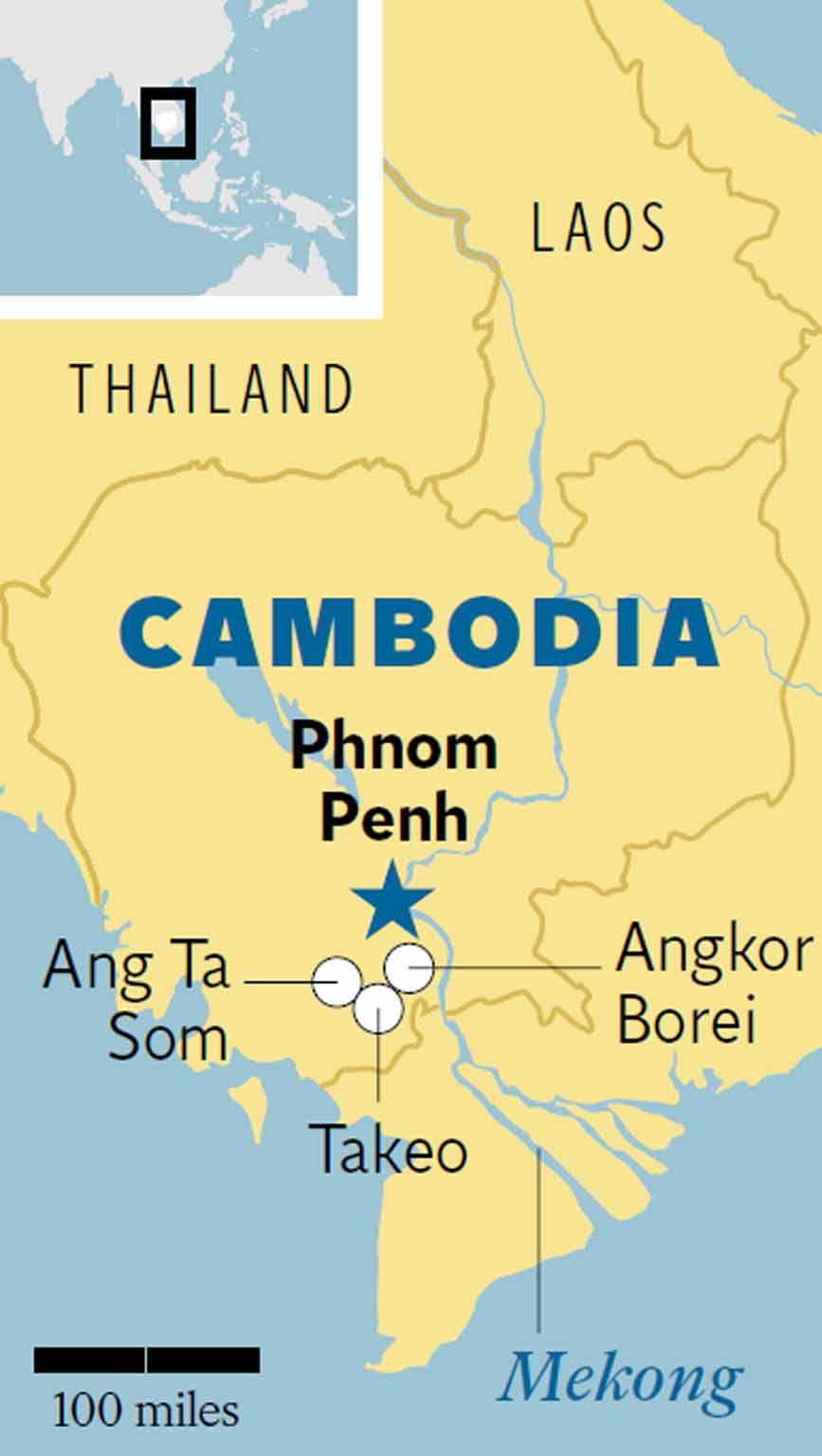Cambodia homestay: Tuk-tuks, temples and a personal touch
Staying with a local family gives Fiona Dunlop the chance to get off the well-trodden tourist trail

Your support helps us to tell the story
From reproductive rights to climate change to Big Tech, The Independent is on the ground when the story is developing. Whether it's investigating the financials of Elon Musk's pro-Trump PAC or producing our latest documentary, 'The A Word', which shines a light on the American women fighting for reproductive rights, we know how important it is to parse out the facts from the messaging.
At such a critical moment in US history, we need reporters on the ground. Your donation allows us to keep sending journalists to speak to both sides of the story.
The Independent is trusted by Americans across the entire political spectrum. And unlike many other quality news outlets, we choose not to lock Americans out of our reporting and analysis with paywalls. We believe quality journalism should be available to everyone, paid for by those who can afford it.
Your support makes all the difference.Sometimes another type of travel experience seems right – less sybaritic, more participatory. In the case of Cambodia, a country that only a generation ago went through a genocide, I found myself asking how I could enter a more authentic world and get closer to the people. Not the tuk-tuk drivers, however charming they may be, nor the hotel-owners, who inevitably have a package to sell, but people who are closely involved in rebuilding their country – and fluent English-speakers to boot. A homestay seemed the perfect ticket.
This might all seem a tad virtuous, but at the Meas homestay I was simply swept away by the constant, cheerful flux.
Feisty, multi-tasking Siphen and the more laid-back Mach are both teachers in their early forties. They have tailored their family home to whoever chooses to come this way, 90 minutes south of Phnom Penh on the way to the south coast. You wouldn't normally stop here, and in fact when my partner and I got off our tourist bus at the nearby market town, Ang Ta Som, passengers sticking to the well-trodden trail wished us good luck.
Ten minutes later, a tuk-tuk dropped us in the rambling Meas garden-compound, where several small buildings surround a serene lily pond. The farm is limited to chickens, rice and a few skinny cattle that were regularly led in and out by Mach's sister, Oan. Outside the walls lie swathes of rice fields, mostly dry at this time of year, pockmarked by large ponds. Later we learned from Mach that these were in fact craters, the result of the US carpet-bombing of Cambodia during the Vietnam War. The same went for the seemingly idyllic lily pond in front of our shared bungalow where we settled into a simple, en-suite bedroom. By steamy mid-afternoon, I was gently dozing in a hammock on the porch.
Nourished by copious Khmer meals served in a gazebo in the company of a handful of mainly Antipodean fellow guests, we were energised. But this turned out to be only just enough to deal with the 40 or so boisterous teenagers who crowded into an after-school classroom – Siphen and Mach's first community project , hand-built beside their compound three years ago. Although they encourage their guests to give English conversation lessons, nothing here is mandatory.
A hand-drawn map of Australia pinned to the wall was a sign of previous guests' input, so when we Londoners took over for 90 minutes, the children were gripped. Their backgrounds varied, yet there was no shyness. They expressed ambitions to be doctors, engineers or teachers.
Next to the classroom is the latest project: a weaving workshop for at-risk women, many of whom have husbands addicted to rice wine. As the looms rattled in the background, we bought some subtly coloured, hand-woven cotton scarves – a huge change in quality and style from the mass-produced variety sold in every tourist shop, and barely more expensive.
From our hideaway, it was only a 20-minute tuk-tuk ride to the relatively prosperous town of Takeo. Following firm instructions from Siphen, our Khmer-speaking tuk-tuk driver rattled along straight to the river. Here we negotiated a speedboat to visit Cambodia's oldest temple, Phnom Da, dating from the sixth century. The hour-long trip through a network of canals gave a glimpse of rural and riverine life, from sowing rice to floating duck farms.

Phnom Da itself stands on a forested hilltop, a semi-ruined sentinel surveying the patchwork of emerald-green rice fields and canals. It cannot rival Angkor's spectacular range of temples, but here we had the luxury of being alone with 15 centuries of history. There was a dark side to this illuminating experience though, as we later learned the main canal had been built by forced labour barely 20 years ago.
Next morning at dawn, woken by bird chatter and chanting from the local pagoda, I set out for a walk through the paddy fields. As the light intensified over the bucolic landscape, I reflected on Cambodia's long, convoluted past, and even more on its future. With input like that of Siphen and Mach, it is looking pretty bright.
Getting there
There are no direct flights between the UK and Cambodia. The main gateway is Bangkok, where connecting flights are available to Phnom Penh from Heathrow with Thai Airways (0844 561 0911; thaiairways.co.uk). Malaysia Airlines flies to Phnom Penh via Kuala Lumpur (0871 423 9090; malaysiaairlines.com).
Staying there
Meas Homestay (00 855 1192 5428; cambodianhomestay.com). Rates start at $18 (£12) per person, per night, full-board, with wi-fi.
Visiting there
Weaving Village (facebook.com/cambodianweavingvillage).
More information
Join our commenting forum
Join thought-provoking conversations, follow other Independent readers and see their replies
0Comments